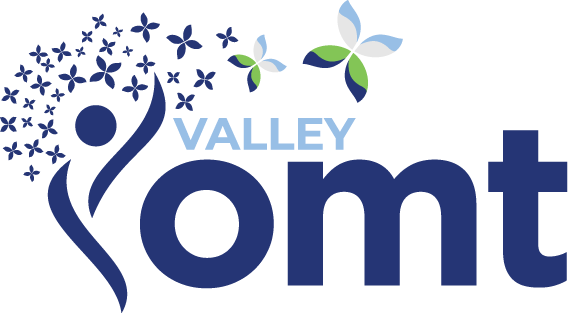As Orofacial Myofunctional Therapists serving Central PA, we often find that patients are initially puzzled by the term “Orofacial Myofunctional Disorder” (OMD). Think of your mouth and face as a sophisticated orchestra – when all the muscles work together in harmony, everything flows smoothly. OMD is like having musicians playing out of sync, affecting how you breathe, speak, eat, and even sleep. The term might sound complex, but it essentially describes a set of disorders that affect how the muscles of your face and mouth work together to perform these essential daily functions. Just as an orchestra needs every section to play in perfect timing, your oral and facial muscles need to work in coordination for optimal function.
Understanding Orofacial Myofunctional Disorders
Orofacial Myofunctional Disorders affect the way your facial and oral muscles work together, but their impact extends far beyond just muscle function. These disorders can develop at any age and often stem from a combination of factors including genetics, environmental influences, and habitual patterns developed over time. When we talk about OMD, we’re discussing a range of issues that can affect the delicate balance of muscles controlling everything from breathing to speaking and eating.
The complexity of these disorders lies in how interconnected our oral and facial muscles are. For instance, a seemingly simple issue with tongue positioning can create a cascade effect, influencing breathing patterns, swallowing function, speech clarity, and even facial development in growing children. It’s similar to how a small change in one part of a well-oiled machine can affect its overall performance. In our years of practice serving the greater Harrisburg area, we’ve seen how addressing these underlying muscle patterns can transform not just oral function, but often a person’s quality of life.
Common Signs of OMD
How can you tell if you or your child may be affected by OMD? Let’s take a look at some of the common signs of OMD:
In Children
- Mouth breathing instead of nasal breathing
- Difficulty with certain speech sounds
- Problems with chewing or swallowing
- Open mouth resting posture
- Tongue thrust while swallowing
- Messy eating habits
- Sleep issues
- Behavioral concerns
- Bad bite/ need for orthodontics
In Adults
- Chronic mouth breathing
- TMJ pain or discomfort
- Difficulty swallowing pills
- Snoring or sleep apnea
- Speech challenges
- Facial muscle tension
- Neck and shoulder tension
- Orthodontic relapse
Impact on Daily Life
OMD can affect many aspects of your daily routine, including:
- Speaking clearly and confidently
- Eating and drinking,swallowing comfortably
- Breathing efficiently- which can impact hobbies
- Sleeping restfully
- Maintaining proper oral hygiene
- Social interactions
- Overall quality of life
The Role of Orofacial Myofunctional Therapy (OMT)
At Valley OMT in Camp Hill, we specialize in treating these disorders through targeted therapy exercises and techniques. Think of OMT as physical therapy for your oral and facial muscles – but even better because it works through muscle memory as we retrain the pathway from the brain to the muscles for life long impact.
Our Treatment Approach
We develop personalized treatment plans that may include:
- Muscle strengthening exercises
- Proper tongue positioning training
- Breathing pattern correction
- Swallowing pattern improvement
- Rest posture awareness
- Habit elimination strategies
- Habituation
Benefits of OMT Treatment
Through consistent therapy, patients often experience:
- Improved breathing patterns
- Better speech clarity
- Enhanced swallowing function
- Reduced TMJ symptoms
- Better sleep quality
- Increased confidence
- Improved facial muscle tone
- Behavioral improvements
Why Choose Valley OMT?
Serving the greater Harrisburg area from our Camp Hill and Harrisburg location, we provide:
- Comprehensive evaluations
- Individualized treatment plans
- Access to an online learning platform with high quality videos for all exercises
- Evidence-based therapy techniques
- One on one in person treatment
- Coordination with other healthcare providers
- Support throughout your therapy journey
When to Seek Help
Consider scheduling an evaluation if you or your child experience:
- Persistent mouth breathing
- Difficulty with certain sounds
- Chronic neck or jaw pain
- Snoring/ Sleep Apnea/ audible breathing
- Swallowing problems
- Tongue thrust
- Behavioral concerns / ADD/ADHD
- Crooked teeth
- Messy eating
Taking the First Step
Understanding and addressing OMD is crucial for optimal oral function and overall well-being. If you’re in Central Pennsylvania, from Harrisburg to Carlisle, and recognize any of these signs in yourself or your child, we’re here to help.
Contact our Camp Hill office today to schedule a consultation. Let our experienced team guide you through the process of improving your oral function through targeted Orofacial Myofunctional Therapy. Together, we can work toward better function, comfort, and confidence.
